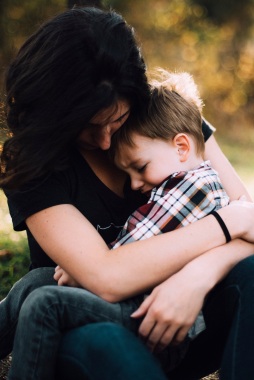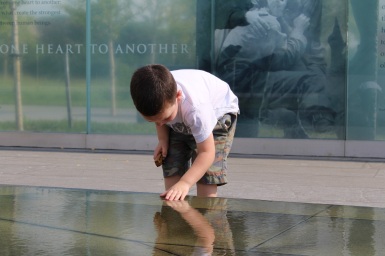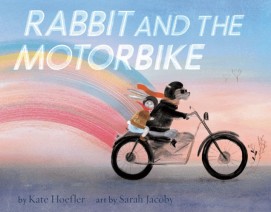 Memorial Day is a federal holiday that honors those who died while serving for the United States military. Celebrated annually on the last Monday in May, it was originally known as Decoration Day. It began after the Civil War, and officially became a holiday in 1971. For many, Memorial Day unofficially marks the beginning of summer. Memorial Day is commemorated in many ways—some will hold gatherings and participate in parades. Others will visit cemeteries and memorials to honor loved ones. Celebrating the holiday often means acknowledging the concept of death with children. Though talking with children about death can be challenging, it’s not impossible.
Memorial Day is a federal holiday that honors those who died while serving for the United States military. Celebrated annually on the last Monday in May, it was originally known as Decoration Day. It began after the Civil War, and officially became a holiday in 1971. For many, Memorial Day unofficially marks the beginning of summer. Memorial Day is commemorated in many ways—some will hold gatherings and participate in parades. Others will visit cemeteries and memorials to honor loved ones. Celebrating the holiday often means acknowledging the concept of death with children. Though talking with children about death can be challenging, it’s not impossible.
When discussing death with a child, first find out what he or she knows. Many children have misconceptions, fears, and worries surrounding the concept of death. While talking about it may not solve all of their problems, you may be able to provide information, comfort, and a clearer understanding of what death means.
Conversations about death will vary depending on children’s ages, personal experiences, beliefs, and cultural customs. Here are some things to consider when talking about loss or death with a child:
Allow the child to ask questions. This will give you an idea of what is on the child’s mind. It will also give you a good starting point in your discussion. Keep your answers simple and straightforward.
Ask the child for his or her thoughts. Asking a child, “What do you think death means?” will help give you an idea of how much the child understands. Many young children believe that death can be temporary or reversed. They struggle to understand that the person or pet is not coming back. Terms like eternal rest and rest in peace are often misunderstood by children, causing them to believe that the loved one is just sleeping.
 Answer honestly. It can be hard to discuss a subject when you don’t know all the answers. It’s okay to respond to questions with “I’m not sure” or “I don’t know, either.” Use your faith or beliefs as a basis for your thoughts about death, and allow the child to explore his or her ideas.
Answer honestly. It can be hard to discuss a subject when you don’t know all the answers. It’s okay to respond to questions with “I’m not sure” or “I don’t know, either.” Use your faith or beliefs as a basis for your thoughts about death, and allow the child to explore his or her ideas.
Validate feelings. Death can cause many feelings, including sadness, guilt, anger, and fear. Explain that all emotions being felt by the child are normal. There is no wrong or right way to feel.
Provide an outlet for emotions. Children may respond to death in different ways. Provide an outlet for the child to express his or her emotions. Offer paper and crayons for the child to draw freely while you are talking to him or her. Use dolls or stuffed animals to role-play while having the conversation. Provide many opportunities for the child to get physical activity.
Remember together. Many people benefit from remembering good times with the loved one who has passed. Whether it was a human or a pet, help the child recall special times they had together. If possible, print off a photo of them together and frame it for the child.
 Say goodbye together. Depending on the age of the child, you may talk with him or her about attending a funeral for a loved one. Explain to the child what happens at a funeral so he or she knows what to expect. Give a choice about attending and honor the child’s decision. For some, attending a funeral is the first step in grieving, but for small children, talking through feelings and just understanding the concept of death itself may be enough. As a family, you may choose to honor a loved with something more personal, such as planting a tree in your backyard, creating a memorial space in your home, or continuing to celebrate that person’s birthday by watching his or her favorite movie or eating his or her favorite meal.
Say goodbye together. Depending on the age of the child, you may talk with him or her about attending a funeral for a loved one. Explain to the child what happens at a funeral so he or she knows what to expect. Give a choice about attending and honor the child’s decision. For some, attending a funeral is the first step in grieving, but for small children, talking through feelings and just understanding the concept of death itself may be enough. As a family, you may choose to honor a loved with something more personal, such as planting a tree in your backyard, creating a memorial space in your home, or continuing to celebrate that person’s birthday by watching his or her favorite movie or eating his or her favorite meal.
Watch for signs of grieving. Children may grieve in different ways. Watch for troubling signs, such as not eating, not sleeping, outbursts at child care, aggression, withdrawal, anxiety, or newly developed phobias. These behaviors require attention and may require help from a professional.
Talking about death might be uncomfortable for you and your child, but the conversation might clear up misconceptions and put some of your child’s fears to rest. Having someone to share memories with is also great therapy and a way to validate the relationship between your child and the loved one.
For more information, visit:
- Sesame Street for Military Families: Grief
- National Alliance for Grieving Children
- NPR Parenting: Difficult Conversations Podcast
- NAEYC: Resources on Death for Young Children, Families, and Educators
Books are great resources in helping children cope with loss or death. The aforementioned NAEYC link contains a list of books by age to support you in talking with children about death and helping them grieve. Some new books to also consider include:
- Rabbit and the Motorbike by Kate Hoefler
- The Invisible Web by Patrice Karst
- Ida, Always by Caron Levis
- The Memory Box: A Book About Grief by Joanna Rowland
Always screen books before reading them to children to make sure they are age-appropriate and fit your family’s beliefs.


Happy Memorial Day.
Be encouraged and blessed
LikeLike